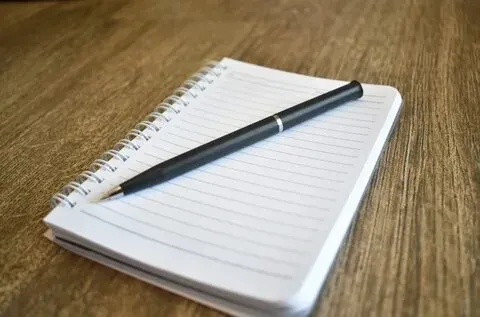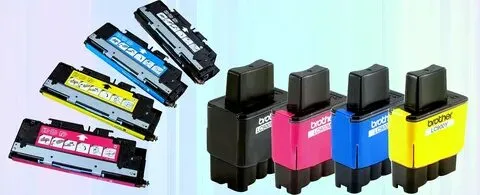Yes, you can print on notebook paper, but it must be flat and not folded. Place one sheet at a time in the printer tray. Use “plain paper” settings and adjust margins to avoid printing on the lines or holes.
In this guide, we’ll explain everything you need to know — from printer settings to paper handling — so you can print properly without damaging your machine or wasting time.
Things to Consider Before Printing on Notebook Paper

Printing on notebook paper can cause jams, misalignment, or poor quality. Always check printer settings and page size compatibility first.
Paper thickness and quality
In addition to being thin and low-quality, notebook paper causes jams, wrinkles, and poor print results, especially when used with laser printers.
Lines on the paper (may affect clarity)
Printed text can overlap with lines, making it harder to read. Use larger fonts or adjust alignment for better clarity.
Pre-punched holes (can misalign print)
Holes in notebook paper can confuse the printer’s feed rollers, causing misalignment or printing in the wrong area.
Type of printer (Inkjet vs Laser)
Laser printers may damage thin sheets if not set up properly, while inkjet printers handle notebook paper better.
Alternatives to Notebook Paper
Print on recycled A4 sheets, blank backs of old prints, or plain paper with a low GSM if you’re out of standard printer paper. Using these options reduces jamming risks, improves print quality, and is safer for laser and inkjet printers.
Risks of Printing on Notebook Paper (And How to Avoid Them
Printing on notebook paper can cause jams, ink smudging, and misalignment. Avoid these by using fresh sheets, manual feed, and adjusting printer settings for thin paper.
Real-World Use Cases: When It Works and When It Doesn’t
Printing on notebook paper works for quick notes or drafts but fails for professional documents due to jams, poor clarity, and misalignment risks. Use only in emergencies or informal settings for best results.
How to Improve Print Quality on Notebook Paper

Ensure your text is centered, the font is larger, and you select draft mode to eliminate smudging. You can also print a test page to ensure alignment is correct.
Use fonts above 12pt for visibility over lines
Using fonts larger than 12pt ensures printed text stands out clearly over notebook lines, improving readability and reducing confusion.
Clarity
Clear, simple designs and text help prevent printed content from blending with notebook lines, ensuring better overall visibility.
Add white background boxes in design to avoid line clashes
Adding white background boxes behind text blocks prevents notebook lines from interfering, keeping printed words sharp and easy to read.
How to Print on Notebook Paper?
To print on notebook paper, adjust printer settings for thin paper, use manual feed, align paper carefully, and select light ink or draft mode. To avoid jams or smudges, test first.
Also read must: How Long Does Thermal Printing Last-Check Print Lifespan!
Sign up for LUCKY COUPON
Sign up for Lucky Coupon to get exclusive discounts and special offers. It’s quick, easy, and helps you save money instantly on your purchases. Don’t miss out on limited-time deals—join now and enjoy great savings!
Understanding Notebook Paper

Notebook paper is thin, lined paper designed for writing by hand. Its texture and lines affect printing quality, causing ink smudges or alignment issues if used in printers without adjustments. Understanding this helps avoid printing problems.
The Considerations When Using Notebook Paper in a Printer
When printing on notebook paper, consider thickness, lined patterns, and holes. Adjust printer settings and use proper paper handling to avoid jams and print quality issues. Proper care ensures better results and fewer printing problems.
Printing Notebook: Creative Applications
You can create custom planners, personalized journals, and artistic designs by printing on notebook paper. It enhances creativity, saves time, and makes notebooks unique for school, work, or gifts. Proper printing ensures clear, neat results for creative uses.
Potential Challenges and Solutions
Printing on notebook paper may cause smudging, misalignment, or paper jams. Use quality paper, adjust printer settings, and feed sheets carefully to avoid these common problems.
Recommended Products for Printing on Notebook Paper
Choose smooth, thick notebook paper designed for inkjet or laser printers. Use quality ink or toner and consider printable labels or transparent sheets for better results without smudging or jams.
Cost-effective Ink or Toner Replacement at YB Toner

YB Toner offers affordable, high-quality ink and toner replacements that save money without sacrificing print quality. Their products fit various printers, reduce printing costs, and ensure smooth, reliable performance, making them a smart choice for budget-conscious users.
Faqs
How do you put notebook paper in the printer?
Place the notebook paper carefully in the printer tray, ensuring the lines face the correct side and the paper feeds smoothly.
What size is notebook paper?
Notebook paper is typically 8.5 by 11 inches, the standard US letter size for easy writing and printing.
How do I load small paper into my printer?
To load small paper, adjust your printer’s paper tray guides to fit the paper snugly before inserting it.
How do you put paper in a typing machine?
Insert the paper into the typing machine’s platen, then turn the roller knob to feed and secure it tightly.
Notebook paper template
A notebook paper template is a digital or printable sheet with ruled lines and margins for easy note-taking or printing.
conclusion
YB Toner provides cost-effective ink and toner replacements that help you save money while keeping your prints clear and reliable. Choosing the right products ensures better printing results on notebook paper and other materials. This balance of quality and affordability makes YB Toner a trusted choice for smart, budget-friendly printing solutions.
Also read must: How To Start A Print Shop- Start Printing Now!
Also read must: How Much Is Metal 3d Printer-Find Best Deal!
